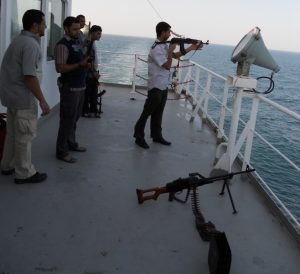
Flag States, Privately Contracted Armed Security Personnel and Human Rights Violations at Sea
By Jessica N.M. Schechinger, Amsterdam Center for International Law, University of Amsterdam It is considered to be the task of a flag state to provide security to commercial vessels flying its flag (Spearin 2012). Yet flag states increasingly transfer this task by allowing ship-owners to hire Privately Contracted Armed Security ...
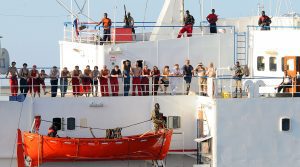
Combatting Maritime Piracy: African Perspectives on an Emerging Threat
Henri Fouché, University of South Africa (UNISA) In 2014 the South African Journal Acta Criminologica (Southern African Journal of Criminology) published a special edition on African perspectives on combating maritime crime. Most articles are based on papers presented at a conference entitled “Sea Piracy: International and Continental Responses” organised by ...
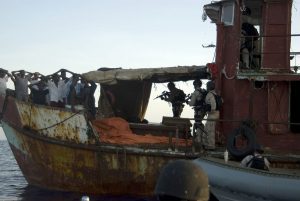
Pirate Mania: Counter-Piracy and the Security-Development Nexus in Somalia
Brittany Gilmer, Florida International University Following the 2009 hijacking of the U.S.-flagged Maersk Alabama and kidnapping of its captain, rethinking the existing framework for combating piracy off the coast of Somali was next to inevitable. The Maersk Alabama hijacking not only raised questions about the size and capabilities of existing ...
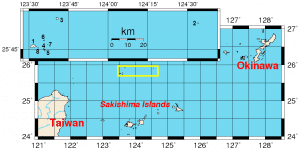
Strategies for Resolving Maritime Disputes: Privatization vs. Institutionalization
Sara McLaughlin Mitchell, University of Iowa and Stephen C. Nemeth, Oklahoma State University Finding ways to resolve maritime disputes and to peaceably allocate maritime resources has become an important concern in international politics. Increasing global population growth combined with the increasing scarcity of some maritime resources has resulted in more ...
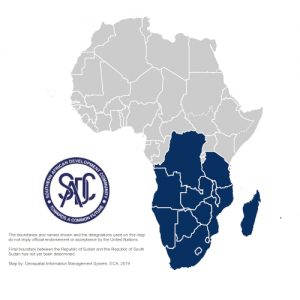
The Maritime Dimension of Conflict Prevention and Resolution: Lessons Learned from East Africa
Francois Vreÿ, Stellenbosch University, South Africa Africa’s maritime domain has steadily emerged as an important security landscape for Africans as well as for the wider international community. This importance is portrayed by the ever-growing number of naval vessels in African waters, but also in the turn to maritime matters taking ...
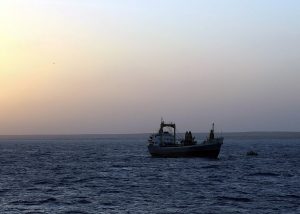
What can Shippers do against Pirate Attacks? Insights from Situational Crime Prevention
By Jon. M. Shane and Shannon Magnuson, John Jay College of Criminal Justice, New York City The shipping industry cannot rely on the navies and traditional law enforcement to protect them from pirate attacks and to hold pirates accountable. Patrolling the open waters is different from patrolling on land, crime ...
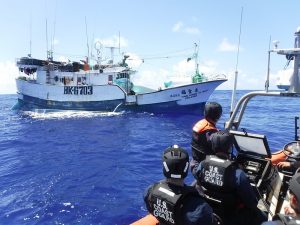
Illegal Fishing and Organized Crime: A Threat to Maritime Security?
Don Liddick, Penn State-Fayette Illegal, Unreported and Unregulated (IUU) fishing is a significant transnational crime problem that costs developing nations up to $15 billion in economic losses annually (Liddick 2011). Perpetrators include established organized crime groups as well as commercial fishing operations; moreover the incidence of IUU fishing is often ...
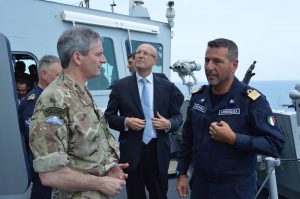
Counter-Piracy Lite? The EU’s ‘Soft’ Maritime Security Drive in the Gulf of Guinea
By Brendan Flynn, National University of Ireland Operation Atalanta (EU NAVFOR) has unquestionably grabbed the limelight as the EU’s most important contribution to combating piracy. However, that mission’s mandate ends in 2014, and while it may be extended it appears to be scaling down as the piracy epidemic off the ...
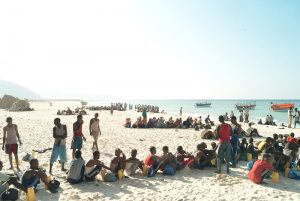
What Drives Maritime Piracy in Sub-Saharan Africa?
by Brandon Prins, University of Tennessee Southeast Asia once dominated the landscape of maritime piracy. From 1999 to 2004 Indonesia experienced nearly 100 pirate attacks per year. But just as piracy was receding in and around the Malacca Straits, attacks in the Gulfs of Guinea and Aden were on the ...
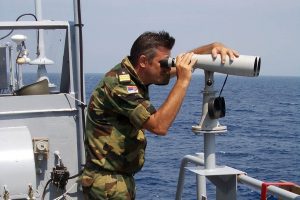
Who Needs NATO to Fight Pirates? Why Europe Launched EU Counter-Piracy Mission Atalanta
By Marianne Riddervold, ARENA Centre for European Studies, University of Oslo When the European Union (EU) launched EU NAVFOR Somalia (Atalanta) in 2008, it became the third multilateral anti-piracy operation established in the waters outside Somalia – all with military contributions from many of the same European states. The United ...
